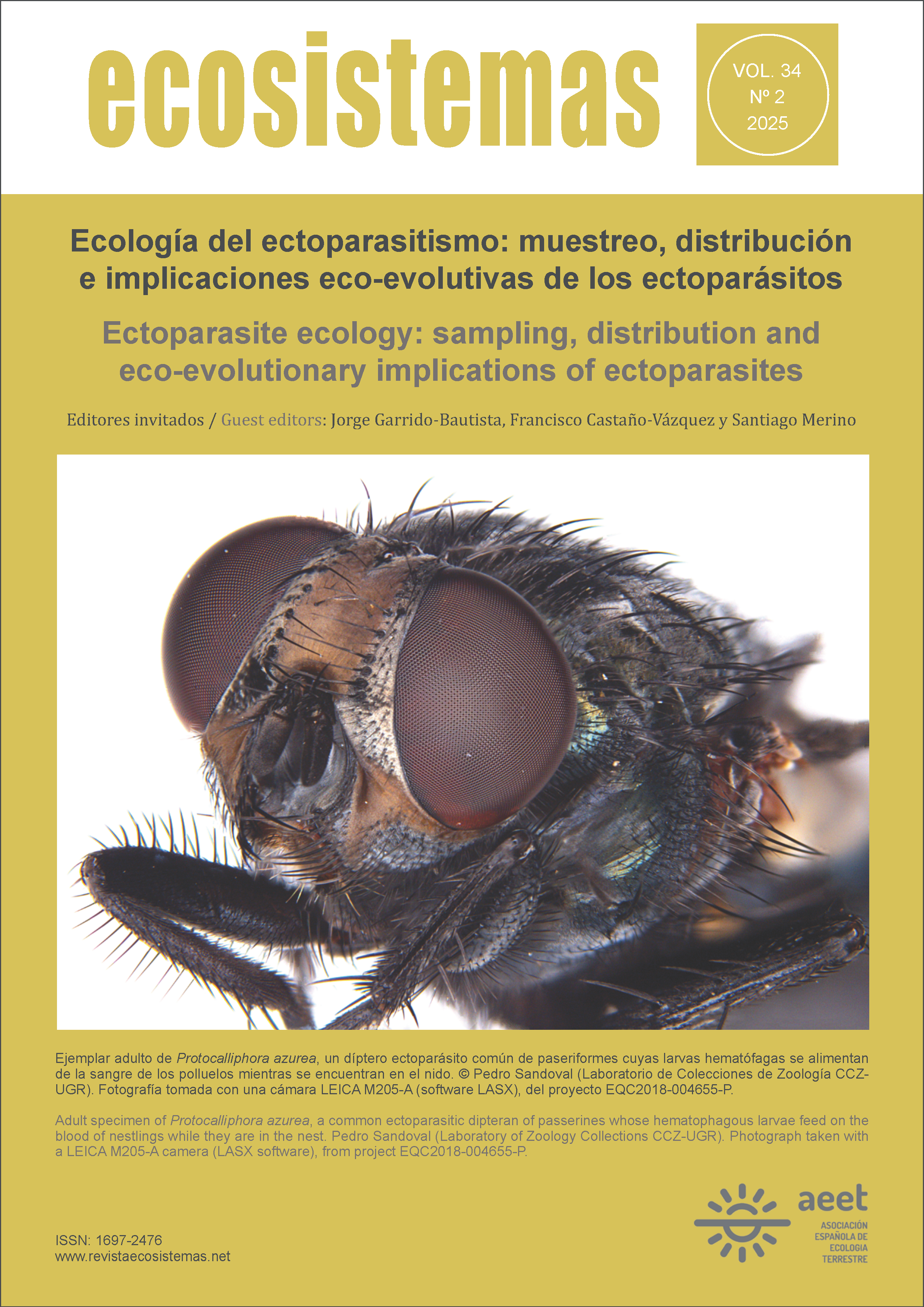Ectoparasitism effects on senescence through telomere shortening: state-of-the-art, methodologies and future perspectives in natural avian populations
Main Article Content
Abstract
Senescence, or the progressive deterioration of function with increasing age is a well-known process that affects many species throughout the animal kingdom. In recent decades, telomeres, the repetitive ends of eukaryotic chromosomes, or rather telomere dynamics, have become one of the most powerful and robust biomarkers of such process because their shortening with age has been associated with reduced survival prospects, lifespan or reproductive output. That telomere shortening may be accelerated with exogenous sources of stress in vivo, is however, still unclear. One source of stress that has been related with increased telomere shortening is infestation with ectoparasites, mostly in bird species, but only a few studies exist. In fact, results in this respect sometimes include complex interactions and other times, negative effects of infestation on telomere shortening remain undetected. In this article, I reflect on the reasons behind this disparity of results with a focus on the complexity of the early-life environment and the methodological limitations surrounding the measurement of telomere length. Finally, I provide suggestions on future experimental and correlational approaches that could tackle these limitations and shed some light on the long-term effects of ectoparasitism on senescence patterns.
Downloads
Article Details

This work is licensed under a Creative Commons Attribution-NonCommercial 4.0 International License.
Accepted 2025-04-15
Published 2025-07-23

